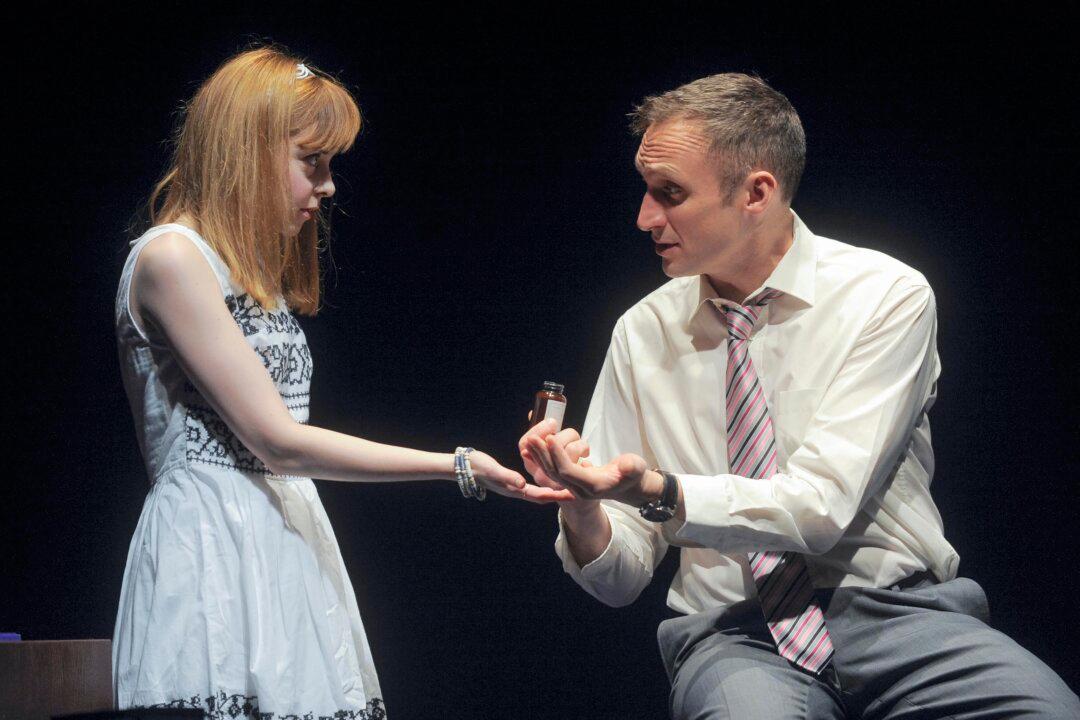NEW YORK—Few things can do more harm than malicious rumors, insinuations, and outright lies, as Alan Ayckbourn’s “Hero’s Welcome” makes clear. The show is making its New York debut at the Brits Off Broadway festival at 59E59 Theaters.
Murray (Richard Stacey) a 38-year-old soldier and former resident of the town of Hadforth, England, has returned home a hero. He’s been honored for his actions in combat, which included saving his unit from sniper fire and rescuing 34 children trapped inside a burning hospital.
With his 22-year-old wife, Baba (Evelyn Hoskins), in tow—she speaking almost no English—Murray plans to settle down in the town he fled two decades earlier.
However, certain residents who remember the circumstances under which Murray left are not ready to welcome him back.
Among them is Brad (Stephen Billington), his former best friend who was in love with Alice (Elizabeth Boag) until Murray stole her away, only to leave her pregnant and waiting for him at the altar. Also, a suspicious fire erupted at that same time.






